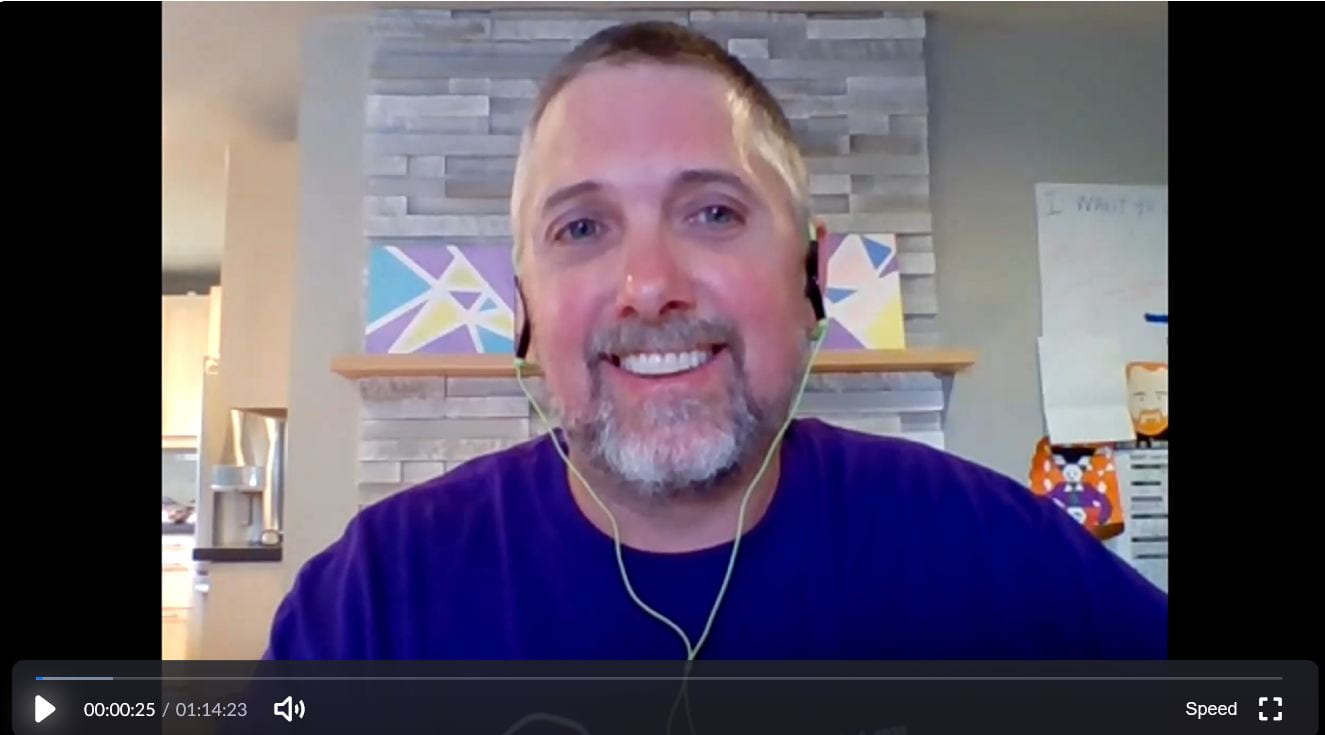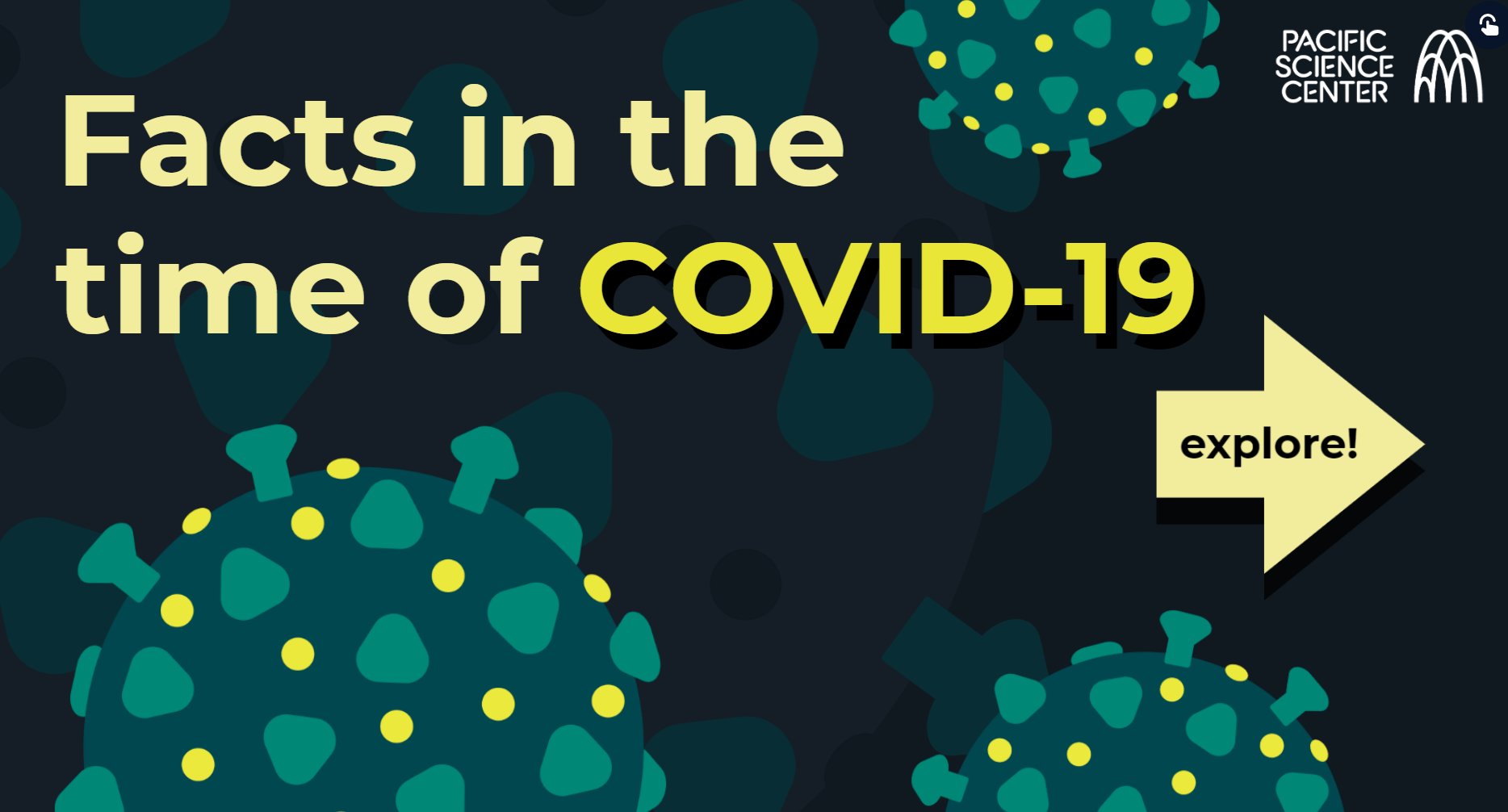This is a web version of the Center for an Informed Public’s News & Insights newsletter for July 2020, which was sent out on July 30. Check out our newsletter archives. Not signed up to received the CIP’s newsletter? Register here.
Seattle teacher brings the Center for an Informed Public’s mission to his students and other educators
Shawn Lee and his AP U.S. History students at Seattle’s Ballard High School were gearing up to attend MisinfoDay at the University of Washington in March when concerns over the coronavirus forced the Center for an Informed Public to rethink its planned in-person event. “We were all ramped up and ready,” Lee said in a recent interview about MisinfoDay, an event first held in 2019 and designed to educate high school students, teachers and librarians about how to be better information consumers and less likely to share misinformation.
Just as the CIP had to shift gears with MisinfoDay 2020 — the planned in-person student event in March turned into a June webinar designed for educators — Lee pivoted as well, organizing his own virtual “MisinfoDay Jr.” event in May tailored for his two AP U.S. History sections at Ballard High School. It was the culmination of a four-part “digital survival skills” curricululm Lee developed with Liz Crouse, a librarian at Seattle’s Nathan Hale High School who helped launch MisinfoDay when she was a Master of Library and Information Science student at the UW Information School. // READ MORE …
- 2020 ELECTIONS: The Center for an Informed Public joins the Election Integrity Partnership.
// LEARN MORE … - INSIGHTS: “Curiosity is an antidote to misinformation,” by CIP director Jevin West.
// READ MORE … - USER SURVEY: Help us out! We want to hear from you.
// TAKE OUR SURVEY …
CIP planning Sept. 1 virtual public forum about deepfakes and synthetic media
The Center for an Informed Public, together with Microsoft‘s Defending Democracy Program, is planning a virtual event for the public focused on the impacts of synthetic media and deepfakes on the 2020 U.S. elections. The upcoming event will draw from three days of virtual roundtable discussions convened by the CIP and Microsoft where leaders from different sectors — including technology, media and academia — shared insights, strategies and tools to better understand the impacts deepfakes and synthetic media could have on the elections and voting processes. The Deepfakes and U.S. Elections virtual public forum is scheduled for Tuesday, Sept. 1 at 2 p.m. EDT / 11 a.m. PDT.
MORE ON DEEPFAKES: Stay tuned for more information about the Sept. 1 public forum, a forthcoming CIP report on deepfakes and synthetic media and a deepfakes-detection quiz.
CIP, WSU partner with Washington Library Association on misinformation webinar for K-12 educators
The Center for an Informed Public, working with Washington State University‘s Murrow College of Communication, recently partnered with the Washington Library Association to host an hour-long webinar for K-12 educators interested in learning more about misinformation-related resources. The webinar, co-presented by CIP director Jevin West and Washington State University Vancouver digital literacy expert Mike Caulfield, included presentations and a Q&A with participants.
// WATCH THE WEBINAR IN FULL …
CIP collaborates with Pacific Science Center on second virtual exhibit
During a pandemic, it’s more important than ever to avoid falling for or spreading misinformation and disinformation. But with so much new and changing information, how do you know what to trust? The Pacific Science Center has teamed up with the CIP on a new virtual exhibit, “Facts in the Time of COVID-19,” designed to help you navigate the ongoing pandemic and the infodemic that has come with it. It’s the second such exhibit collaboration between the CIP and PacSci.
// LEARN MORE …
Sno-Isle Libraries 2020 TEDx talk features the CIP’s Chris Coward
Chris Coward, a CIP principal investigator and co-founder who also directs the University of Washington Information School’s Technology & Social Change Group, recently joined the Sno-Isle Libraries, the public library system serving Snohomish and Island counties, for an independently organized TEDx discussion titled “Unmasking Misinformation,” which explored issues including digital inclusion, digital literacy and misinformation.
// WATCH A REPLAY OF THE DISCUSSION …
CIP in the News
Since the Center for an Informed Public officially launched late last year, our researchers have been regularly interviewed, quoted or otherwise featured in various local, regional and national news outlets, livestreams and podcasts.
In a July 23 article published in The Conversation, CIP principal investigator and co-founder Kate Starbird (pictured above) wrote about how disinformation campaigns are “murky blends of the truth, lies and sincere beliefs.” Starbird wrote: “The notion of disinformation often brings to mind easy-to-spot propaganda peddled by totalitarian states, but in reality is much more complex. Though disinformation does serve an agenda, it is often camouflaged in facts and advanced by innocent and often well-meaning individuals.” Starbird’s article was republished or referenced in a variety of publications, including Nieman Lab, Fast Company, Motherly and Now Kalamazoo, a local publication in Kalamazoo, Michigan that launched this winter to share official COVID-19 information and community resources.
In other recent highlights:
- The CIP’s ongoing work was spotlighted in a front-page Sunday, July 5 feature in The Seattle Times. “When a mysterious virus began racing around the globe earlier this year, scientists at the University of Washington’s newly created Center for an Informed Public described it as the perfect storm for bogus information, both innocent and malicious,” The Times‘ Sandi Doughton wrote. “So what’s the situation six months later, now that the coronavirus pandemic is playing out in tandem with a passionate push for racial justice and the opening volleys of the presidential race? The perfect superstorm?” [The Seattle Times]
- The Washington Post recently interviewed Starbird about Twitter’s recent move to ban 7,000 QAnon accounts in an effort to crackdown on conspiracy theorists on its platform: “Removing some of the inorganic activity and just dampening, limiting the visibility of their activity, can perhaps make a dent in some of the misinformation we’ve been seeing,” Starbird said. [The Washington Post]
- In the July 15 edition of Politico‘s Future Pulse health tech newsletter, CIP principal investigator and co-founder Ryan Calo was one of the many experts asked about whether they trust COVID-19 automated contact-tracing app technology: “I am a longtime (well, several month) critic of contact-tracing apps because I don’t think they will work well, especially in an environment like the United States where we don’t have adequate testing and non-compliance with masking and social distancing is rampant.” [Politico]
- Kolina Koltai, one of the CIP’s new post-doctoral scholars, was interviewed in the UW Daily about the public trust issues that are likely to emerge when a vaccine for the coronavirus becomes available: “The concern is that, for most people who aren’t intimately involved with vaccine development, that can sound really scary. I think you’re also going to see people who wouldn’t necessarily consider themselves a vaccine skeptic that might be a little hesitant to take the vaccine right away.” [UW Daily]
- Starbird and Koltai were both featured in a July 29 Fast Company article about whether the rise of various COVID-19 conspiracy theories has changed people’s real-life behavior. [Fast Company]
- Carl Bergstrom, a UW biology professor who is also an affiliate researcher at the CIP, was recently interviewed by The Wall Street Journal about some of the risks associated with Major League Baseball’s return-to-work strategy. The New York Times also interviewed Bergstrom about what science and other countries can teach the United States about reopening schools. [The Wall Street Journal; The New York Times]
- CIP director Jevin West was interviewed on KUOW Public Radio in Seattle about the rise of hyper-partisan fake local news sites. [KUOW]








